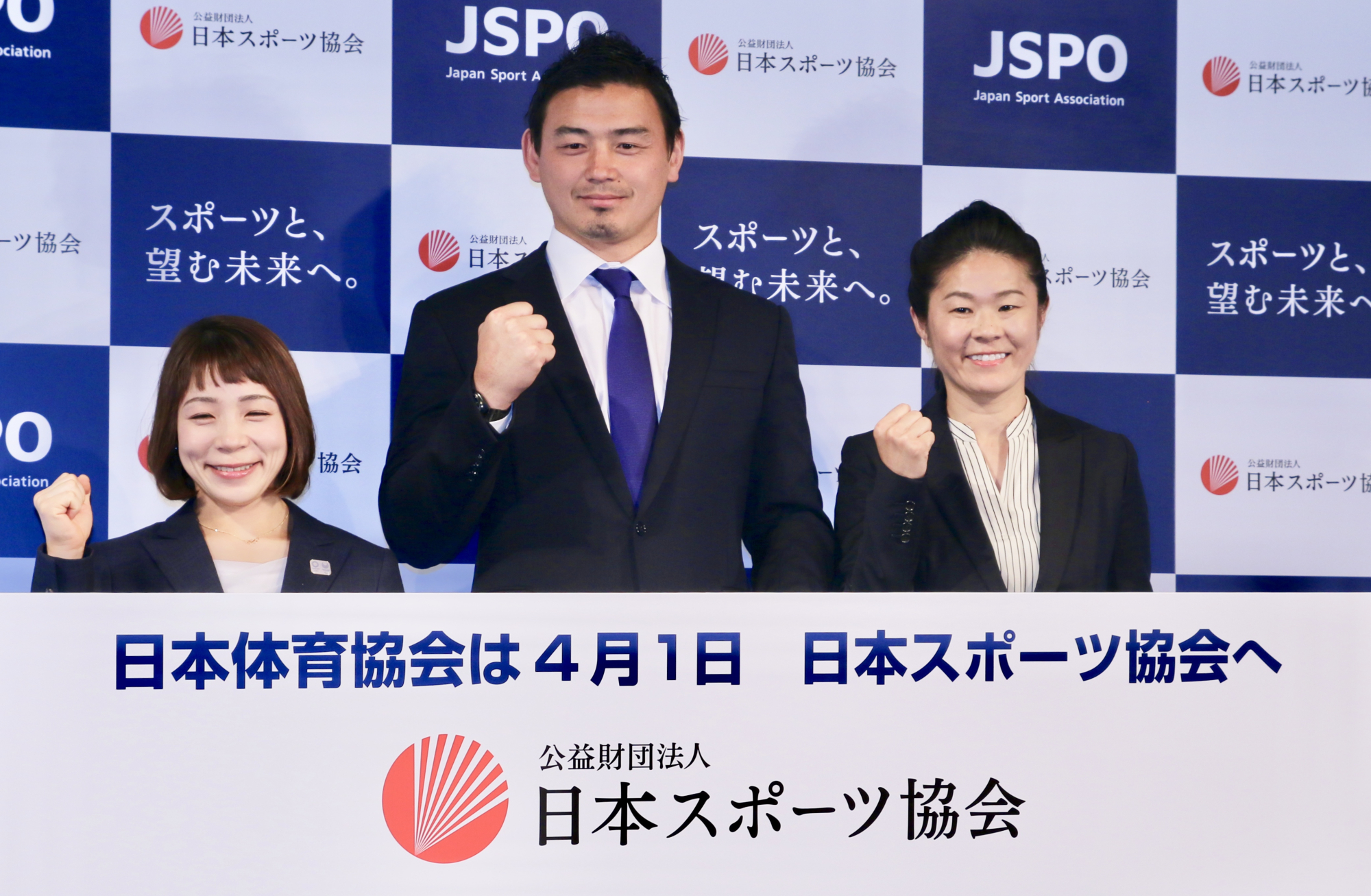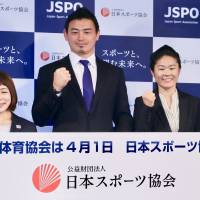The Japan Sports Association is modifying its organizational name beginning with the start of the new fiscal year on Sunday.
Well, in English, the change is tiny. It will now be called the Japan Sport Association, with "Sport" as a singular noun (the abbreviation becomes JSPO).
But taking one letter out indicates what the nation's governing body for sports federations and prefectural sports governing bodies wants to do moving forward.
"Sports, in plural, mean an aggregation of different sports," JSPO chairman Masatoshi Ito said at a Tokyo news conference on Thursday. "But when you make it as sport in singular, it means a common culture of humanity."
The Japanese organizational name has always included a word "taiiku" — which is literally translated into "physical education" or "physical training" — since its inception in 1911.
The Japanese name (Nihon Taiiku Kyokai) has been unchanged since 1948, but the organization decided to rename it because sports are no longer a means to just train people as part of education, but are meant to give a more affluent culture to citizens.
The JSPO defines sports as "a common culture for all of humanity" that people "enjoy voluntarily," implying they are not activities that they are forced to do. And it hopes to give the people in Japan more access to sports.
The 1964 Tokyo Olympics became a catalyst for Japanese citizens to begin enjoying sports more, Ito said, and now the JSPO hopes that people in Japan, regardless of gender, race or nationality will have fun with sports.
He added that the JSPO "would like the entire 100 million citizens (of Japan) to enjoy sports."
The first time the organization was given an English name was in 1921, when it was called the Japan Amateur Athletic Association. It removed the word "Amateur," becoming the Japan Sports Association in 2005 as commercial aspects have been added to sports in general.
In a talk session that was held after the news conference, two-time Olympic weightlifter Hiromi Miyake, the 2011 FIFA Women's World Cup champion Homare Sawa and rugby star Ayumu Goromaru sat down and spoke about their hopes for Japan's sports culture in the future.
"I think that there's a lot of people that have the top athletes in their mind when they talk about sports," said Goromaru, who became a household name as a fullback for the Japan national team during the 2015 Rugby World Cup in England. "But sports should be enjoyed by men and women of all ages more widely. So hopefully, communities will expand through sports."
Meanwhile, Masafumi Izumi, the JSPO vice chairman and managing director, said that what is known as "Taiiku no hi" (Health and Sports Day) in Japanese for the second Monday of October national holiday, would likely be renamed, replacing the "taiiku" with "sports" before the 2020 Tokyo Olympics.
Likewise, the JSPO is also working to change the Japanese name of the National Sports Festival, which includes a wide range of sports, from the 2023 edition in Saga Prefecture, Izumi said.




